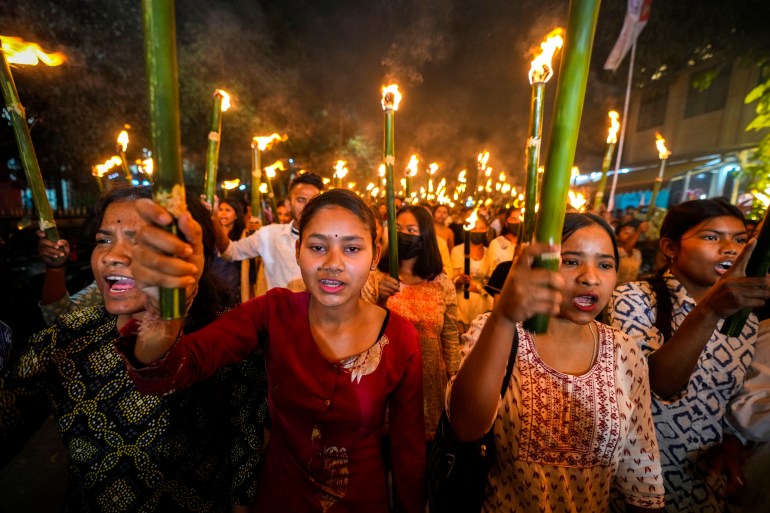Prime Minister Narendra Modi’s government has approached a major Indian think tank to develop a homegrown democracy ratings index that could help it counter recent downgrades in rankings issued by international groups that New Delhi fears could affect the country’s credit rating.
The Observer Research Foundation (ORF), which works closely with the Indian government on multiple initiatives, is preparing the ratings framework, according to two people closely involved in the discussions on the project. The index is expected to hew more closely to New Delhi’s narrative than Western-based rankings that Modi’s team has criticised.
“A review meeting was held by NITI Aayog in January, and it was decided that ORF will be releasing Democracy Rankings in a few weeks,” a top government official said, requesting anonymity.
The new rankings system could be released soon, the official said. How soon, though, is unclear – including whether the index might be unveiled before India’s upcoming national elections, announced last Saturday. India will vote in seven phases starting April 19, with votes counted on June 4. Modi is a strong favourite to return to power for a third term.
“The Democracy Index being prepared by ORF went through a peer review process and expert analysis on the methodology a few weeks ago … it is likely to be released soon,” a second source familiar with the development said.
ORF, which co-hosts the Raisina Dialogue – India’s equivalent of the Munich Security Conference and the Shangri-La Dialogue, other major geopolitics, and geo-economics conclaves – with the country’s Ministry of External Affairs, did not respond to queries from Al Jazeera. The Raisina Dialogue was held this year between February 21 and February 23.
The NITI Aayog, the government’s own public policy think tank that has been shepherding internal discussions within the Modi government on global rankings, said it was not preparing the index – but did not confirm nor deny whether it was involved in helping an external think tank prepare one.
“NITI is not developing any Democracy Index,” a spokesperson for the body told Al Jazeera. “The government of India monitors select global indices [by various global entities] to drive reforms and growth in the country.”
Yet emails and the minutes of meetings held between government agencies over the past three years, accessed and reviewed by Al Jazeera, point to a growing urgency within the Modi administration on challenging setbacks to India’s democracy credentials, including through a report prepared by India.
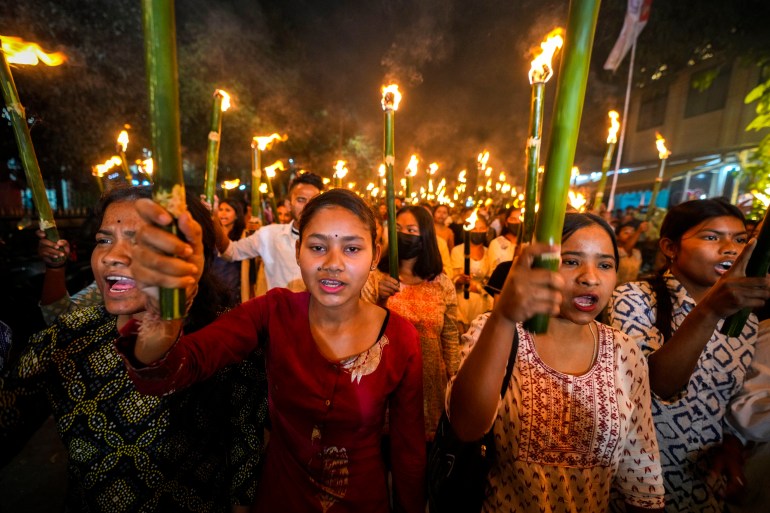
‘Flawed democracy’ or ‘self-appointed custodians’?
This exercise began right after international indices such as US-based non-profit Freedom House downgraded India’s status from a free democracy to a “partially free democracy” in 2021. The V-Dem Institute, based in Sweden, classified India as an “electoral autocracy”. The Economist Intelligence Unit ranked India 53rd in its 2020 Democracy Index, labelling it a “flawed democracy”, citing factors such as the Citizenship Amendment Act (CAA), National Register of Citizens (NRC) and the revocation of special status in Indian-administered Kashmir.
The CAA, whose implementation was announced last week on the eve of elections – four years after it was passed by parliament – introduces what critics say is India’s first religion-based citizenship test. In effect, asylum seekers from neighbouring nations who were not Muslims can get an expedited path to Indian nationality. The NRC initiative, according to its opponents, threatens the expulsion of millions of people whose families have lived in eastern and northeastern India for generations, but who – like many Indians – do not have formal birth documents. In 2019, India ended a special constitutional provision that gave Jammu and Kashmir a semi-autonomous status.
India’s ranking in the Economist Intelligence Unit’s (EIU) Democracy Index had fallen sharply between 2016 and 2020, though it has improved marginally since then: up to 41 (tied with Poland) in 2023, from 46 in 2022. However, it remains classified as a “flawed democracy”.
The Indian government has dismissed these international rankings, stating that India did not “need sermons”. Indian Foreign Affairs Minister S Jaishankar in March 2021 accused the institutions behind these rankings of “hypocrisy” and called them “self-appointed custodians of the world who find it very difficult to stomach that somebody in India is not looking for their approval”.
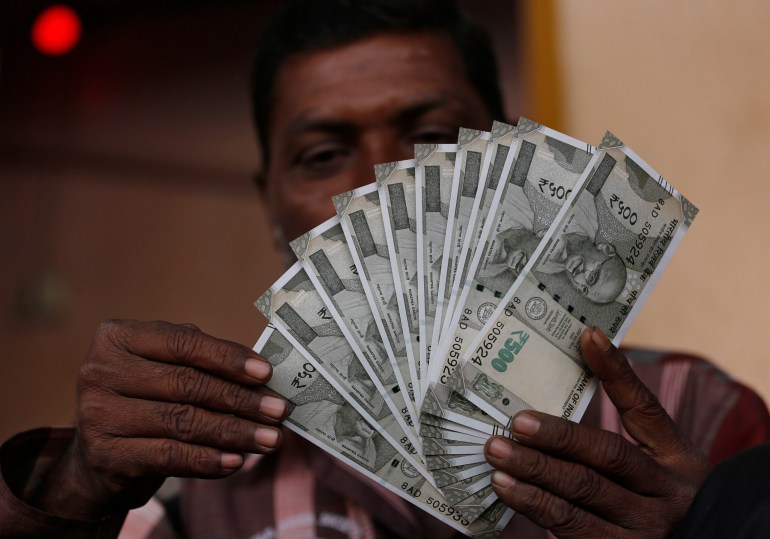
‘What can we do about it?’
Yet, despite public bravado, behind the scenes, the Indian government has been worried.
In 2021, top officials from central Indian government ministries and departments such as home affairs, external affairs and the legislative departments, among others, were instructed by Cabinet Secretary Rajiv Gauba to monitor India’s performance in democracy indices and identify areas where the country’s standing had declined.
The Indian government began monitoring its performance in 30 global indices, with different ministries tasked with tracking individual ratings. For instance, the legislative department under the Ministry of Law and Justice was assigned the EIU’s Democracy Index to watch. The NITI Aayog was asked to create a dashboard for monitoring data across all the indices.
In a review meeting for monitoring of these indices taken by the cabinet secretary in July 2022, it was noted in the minutes of the meeting that the NITI Aayog’s then-CEO Amitabh Kant “proposed prioritising Global Indices carrying high reputational risk for monitoring by NITI Aayog”.
The minutes of the meeting also noted that Sanjeev Sanyal, member of the Economic Advisory Council to the Prime Minister “drew attention of the Committee to faulty methodologies, inadequate sample sizes, undue weightage to perception-based surveys, one size fits all global standards for benchmarking and biased approach of Publishing Agencies/data agencies”.
They also noted that as the Worldwide Governance Indicators “published by World Bank impacts sovereign rating, [Sanjeev Sanyal] advocated the need for flagging India’s concerns. He observed that we should demand accountability and transparency in these matters from the World Bank, as also other multilateral bodies which publish some of the Global Indices”.
The World Bank’s Worldwide Governance Indicators (WGI) report both aggregate and individual governance indicators for more than 200 countries and are key inputs used by ratings agencies in determining the sovereign ratings of nations. India’s own internal assessment has previously found that India’s scores were “much below” its peers on all counts. The government assessment acknowledged that India needed to do better and said there was a danger India may witness a drop in WGI scores “due to the latest negative commentary on India by think tanks, survey agencies and international media”.
This was even highlighted in June 2020, when Sanyal, then principal economic adviser in the Ministry of Finance, prepared a presentation titled “Subjective Factors that Impact India’s Sovereign Ratings: What Can We Do About It?” for internal circulation within the government. It said factors noted in the Freedom House report also led to the country receiving the largest score decline among the world’s 25 largest democracies in 2020. The Freedom House Report 2020 mentioned “alarming setbacks in the world’s largest democracy” and highlighted that “a series of actions by India’s Hindu nationalist government in 2019 violated democratic rights in India and Indian Kashmir”.
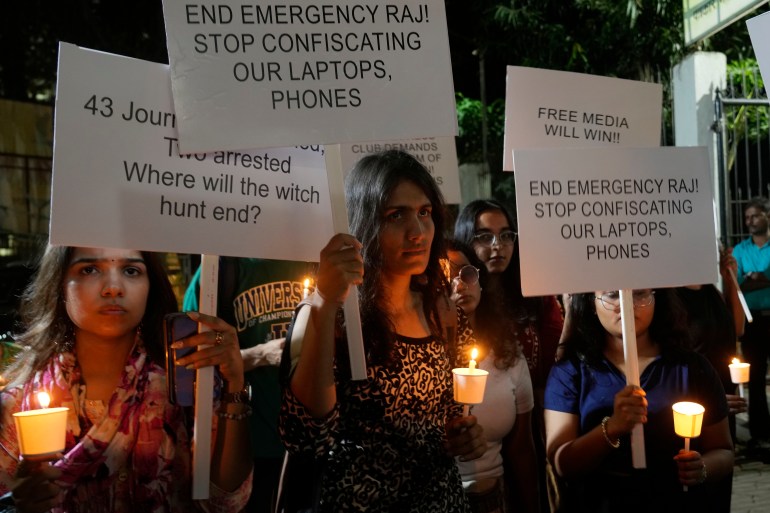
Concerns with global ratings
The Indian government is not alone in disputing the parameters that agencies use for sovereign ratings. Independent economists too have challenged these indices.
“We have known that the major component of a sovereign rating is the per capita income of a country,” said Rathin Roy, a senior fellow at the UK-based Overseas Development Institute. “That has been the main criticism of India and other major developing countries, like Brazil and Indonesia. And that’s a criticism I fully support.”
But Roy questioned the government’s emphasis on proving India’s democratic credentials and the link to the country’s sovereign rating.
“If you look at stuff like democracy and political stability, their weightage in the sovereign rating is fairly small,” he said. “It may be true that they form part of the qualitative assessment of rating agencies. And these agencies may be biased. But I think the interesting story here is, why is this government bothered about relatively small stuff like democracy in the ratings, as opposed to the major elephant in the room, which is per capita income?”
Just months after Sanyal’s June 2020 presentation, the Indian government began to take steps to develop its own index in a bid to rebut Western downgrades. “We may encourage one of the Indian independent think tanks to bring out its own annual world democracy report based on comprehensive parameters,” the Foreign Ministry wrote in an internal note in January 2021.
In its note, the ministry also suggested that Indian diplomatic missions across the world actively engage with organisations like V-Dem and Reporters Without Borders (RSF) to give them information that would help them put “India at the rightful place on the democracy and press-freedom index, in future reports”. India’s ranking in the World Press Freedom Index fell from 150th in 2022 to 161st this year out of 180 countries, according to the latest report released by global media watchdog RSF.
The Law Ministry turned to India’s High Commission in London to seek details from the EIU on its assessment of India. In an email exchange in July 2021 between the Law and Foreign Ministries, it was revealed that repeated attempts were made by the mission to contact EIU. “EIU did not welcome any engagement as it took several attempts over a period of time to finally connect,” the note said, and “politely but firmly declined the offer from the mission to supply data, research or similar inputs.”
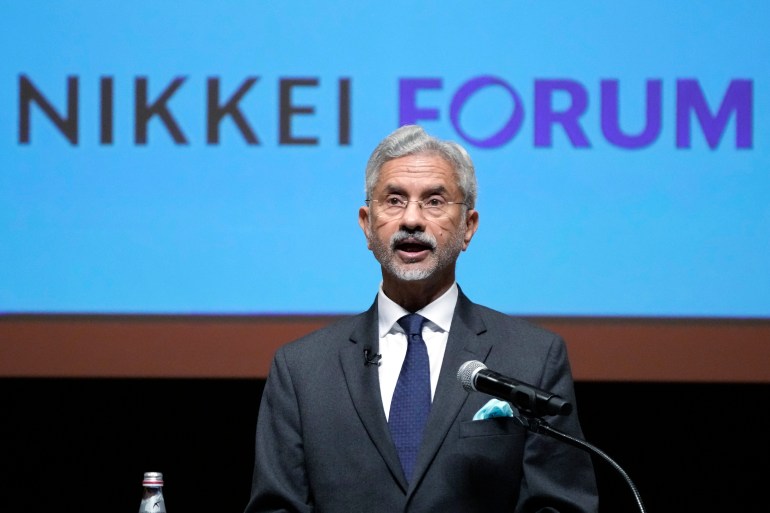
‘Will damage India’s case’
But that didn’t deter the Indian government. Also in 2021, the Indian Foreign Ministry nudged Om Birla, the speaker of India’s lower house in Parliament, to brief heads of foreign missions in New Delhi on the robustness of Indian democracy. It prepared “speaking notes” for him.
“A large democratic world exists beyond the West, one that gives democracy and pluralism a more universal appeal. But for that to make itself felt in the current situation, the power of ideas and strength of beliefs need to be stronger than the prejudices of history. Whether such convergences can override entrenched frameworks is still an open question. India holds the key to the answer,” the notes read.
And on Tuesday, India’s Foreign Minister S Jaishankar referenced ancient Indian scriptures as proof of India’s long democratic traditions, in an address at the Summit of Democracy in South Korea. “India’s ancient civilisation, marked by profound philosophical traditions, and a deep respect for individual freedom, laid the groundwork for the democratic ideals that we cherish today,” he said.
Roy, the economist, said the government’s approach appeared to betray insecurity about “its own approach to democracy, press freedom and other things, which are negative irrespective of their subjective impact on ratings”.
An India-developed democracy rating could backfire on the country, he said. Other countries and organisations would not give it credibility if the index is perceived as being driven by the Indian government, he said.
“In fact, I would say that if the government started this sort of exercise, it would damage India’s case. It would be best to ignore the democracy and other subjective elements of sovereign ratings given their minor weight,” Roy said.
It is unclear what parameters an Indian-designed democracy ratings index might use. Al Jazeera sent detailed questionnaires to the Foreign Ministry, Law Ministry and ORF but has received no response. In response to an email seeking comments, Sanjeev Sanyal’s office declined to comment stating: “Shri Sanjeev Sanyal ji, Member EAC-PM has a hectic official schedule, hence request for comment is regretted.”
Read More: World News | Entertainment News | Celeb News
Aljazera

